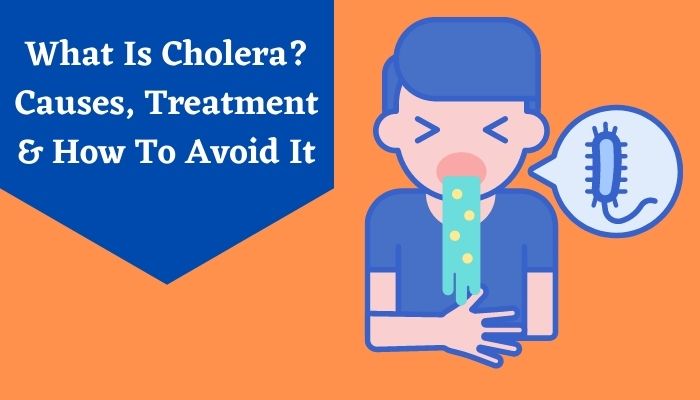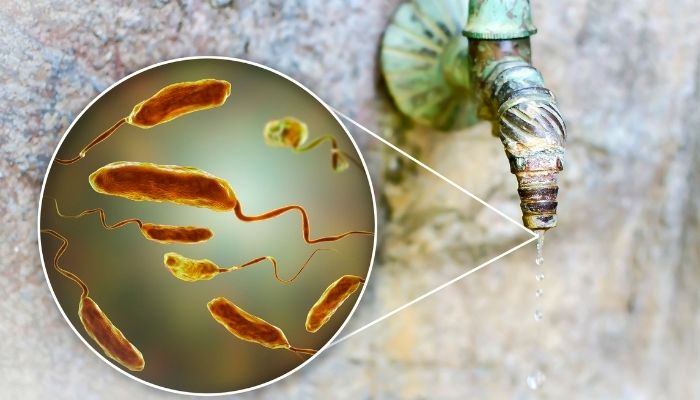Cholera is a bacterial disease that causes severe diarrhoea. It is a very easily curable disease, but when left untreated, can kill the patient in just a few hours. Cholera is dangerous because people do not understand they have it, and this leads to severe complications in a very short period of time. Take a look at this article to know more about the disease along with the right methods of cholera treatment. Also, find out how is cholera treated?
What Is Cholera?
As stated, cholera is a bacterial disorder caused by the Vibrio cholerae bacterium. A person who is affected with cholera gets severe diarrhoea. This diarrhoea is similar to any other diarrhoea, so understanding the real cause is tricky. Cholera completely dehydrates the patient in just a few hours. If not treated at the right time, the disease proves to be fatal. It is also highly contagious and spreads by the consumption of contaminated water.Top 8 Symptoms of Cholera
- Diarrhea
- Vomiting
- Leg Pain
- Low Blood Pressure
- Thirsty
- Fast Heart Rate
- Muscle Cramps
- Dehydration
Treatment of Cholera
Cholera can be treated very easily. However, for this to happen, the patient needs to identify the illness and acknowledge the presence of the bacteria in his body. After it has been diagnosed, the patient is given the standard cholera medication and cholera treatment antibiotics which include:- Doxycycline - A common cholera medicine, doxycycline is given as a first-level medicine to stop diarrhoea in a quick way.
- Azithromycin and ciprofloxacin - Azithromycin and ciprofloxacin are given if doxycycline doesn't work for the patient.
Treatment for Dehydration
After the diarrhoea is controlled, the patient needs to be rehydrated for the loss of fluids. This can easily be done at home with the help of oral rehydration solutions (ORS) or by taking electrolyte fluids. The patient needs to continuously sip on these beverages. Along with this, a constant intake of plain water and plain coconut water also helps to restore the fluids in the body.If the patient is very critical, then the hydration needs to happen via IV fluids, post-admission in a hospital. Speak to your doctor and follow his instructions to recover quickly.
Top 5 Tips for Prevention of Cholera
Prevention is always better than cure and so you need to ensure your family stays protected against this deadly disease. Thankfully, cholera has been controlled greatly in India and it rarely breaks out in the developed parts of the country. It is still prevalent in some parts, mainly where the living conditions are unhygienic. If you fear your family has the chase to get cholera, keep the following tips in mind:1. Keep the water clean
Cholera most commonly transmits from the consumption of contaminated water. This is why you should be extremely cautious about the drinking water in your house. Have water that has been filtered properly. Alternatively, you can boil the water, cool it down, and then have it. Never consume water from the tap or from an unknown source. Even when you visit restaurants, make sure you get packaged drinking water or carry your own water from home.2. Keep the washroom clean
Cholera spreads through the infected faeces of a cholera patient. This is why keeping your washroom clean and disinfected should always be a top priority. Also, be judicious when using public restrooms and avoid using one that is very dirty or unhygienic. Washrooms are a breeding ground for cholera bacteria, so be extremely careful.3. Wash your hands frequently
The bacteria can also spread through your hands, so wash your hands very well. Do this especially before you eat or else your food can get contaminated with the Vibrio cholerae bacterium.4. Eat hygienically
Just like the water you drink, the food you eat also needs to be absolutely clean, properly cooked and hygienic. Do not eat roadside food or food that has been lying around for long. Always clean the raw materials very well and then cook. These measures will help prevent cholera to a great extent. Also, be very mindful of the water you use to cook.5. Get vaccinated
And last but not the least, remember to get vaccinated against cholera. The cholera vaccine is an effective method to stay safe against the disease. The vaccine is available for kids as well as adults, so make sure you get the vaccine for all the members of your family.Follow these steps and you will be able to prevent cholera to a large extent.



